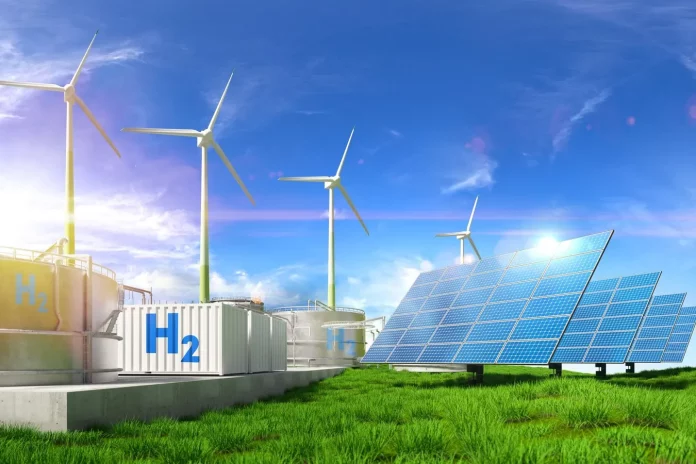Bitcoin mining has recently faced major criticism for its substantial environmental impact, owing to its massive energy usage, which is primarily produced from fossil fuels. A new study suggests that Bitcoin mining, when combined with green hydrogen, could accelerate the clean energy transition, despite concerns about its impact on climate change. The study published in the PNAS journal suggests that Bitcoin mining profits could be utilized for clean hydrogen production and renewable energy.
Bitcoin mining, the process of confirming transactions on the blockchain, needs significant processing power, which results in high energy consumption. A lot of its mining operations depend on nonrenewable energy sources, which increases carbon emissions and contributes to climate change. However, Bitcoin mining has the potential to drive innovation in renewable energy technologies. By providing incentives for the development of more sustainable and efficient energy sources, Bitcoin could expedite the transition to renewable energy.
Green hydrogen offers a solution. Excess renewable energy can be used to generate green hydrogen, which effectively stores energy for periods of low generation. When demand for electricity from Bitcoin mining increases, the stored hydrogen can be converted back into electricity. This results in a more balanced and efficient energy system that uses renewable energy to its maximum capacity. Another potential solution is the utilization of excess energy from renewable sources. In areas with abundant renewable energy sources, such as wind or solar power, there are frequently periods of excess energy production that exceeds demand. By utilizing this surplus energy, Bitcoin mining operations could effectively convert energy into a valuable resource.
However, the transition to clean energy with Bitcoin is not without challenges. The production of green hydrogen is currently limited. Scaling up production to suit the demands of large-scale Bitcoin mining operations would require significant investment in research and development. Also, the conversion of green hydrogen back to electricity can be energy-intensive, potentially compromising the environmental benefits. The efficiency of this process requires significant technological advancements.
Although there is no definitive answer on whether Bitcoin mining can effectively aid in the clean energy transition, it does present a possibility. By adopting green hydrogen and encouraging collaboration among the cryptocurrency sector, legislators, and technological development, Bitcoin mining’s ability to contribute to a more sustainable future becomes more tangible.





